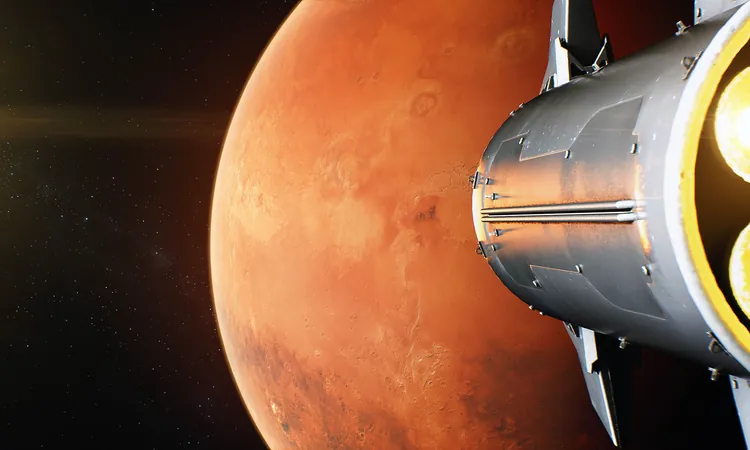
Astronauts Eyeing Mars Face Serious Kidney Risks! Can They Survive the Journey?
2025-03-27
Author: Lok
Kidneys Under Scrutiny
Recent research spearheaded by Dr. Keith Siew from the London Tubular Centre at UCL has turned the spotlight on kidney health during long-duration space flights. An extensive study involving over 40 global institutions analyzed kidney function across numerous missions, including those to the International Space Station and various simulations with rodents. This research represents the most comprehensive investigation into how space conditions can impact kidney health.
Findings indicate that microgravity and cosmic radiation not only alter kidney structure but also significantly heighten the risk of complications such as kidney stones. The study reported that specific kidney tubules, essential for maintaining the body's balance of salts and calcium, begin to shrink within just a month of exposure to microgravity.
Galactic Radiation: The Invisible Threat
Unlike astronauts aboard the ISS who benefit from a degree of shielding provided by Earth’s magnetic field, future Mars explorers will be fully exposed to Galactic Cosmic Radiation (GCR). Historical data reveals that only 24 individuals, who ventured to the moon, have endured the full force of this radiation for a limited duration of around 6-12 days.
Under experimental conditions mimicking 2.5 years of space travel, mice subjected to GCR displayed alarming signs of permanent kidney impairment. Researchers discovered that increased exposure to cosmic radiation can lead to disarray in how kidneys manage essential minerals—an alarming revelation for astronauts looking at long-term cosmic journeys.
Impending Challenges on Mars Missions
Dr. Siew emphasized the gravity of the situation, stating, “We know there’s an uptick in health issues like kidney stones from shorter space missions, but we need a better understanding of what prolonged exposure will mean.” Without advances in protective measures for the kidneys, astronauts may have to rely on dialysis either en route or upon reaching Mars.
This distressing news accompanies ongoing awareness within the scientific community that space travel poses various health risks, including effects on bones, eyesight, and cardiovascular health. This new evidence adds a critical layer of concern specifically regarding renal health.
Future of Space Medicine
The implications of these findings extend beyond space. Potential treatments developed to safeguard astronauts' kidneys may benefit patients on Earth, such as cancer victims whose kidneys struggle against high doses of radiotherapy. "As we continue to unravel the mysteries of renal biology, we could eventually develop solutions that not only address the needs of spacefarers but also revolutionize treatments for terrestrial ailments," noted Professor Stephen B. Walsh.
The international collaboration behind this research suggests a hopeful path forward—one where scientists not only protect astronauts but also improve health outcomes on Earth. As mankind sets its sights on stretching the horizons of our existing space travel capabilities, addressing the challenges posed by cosmic radiation and microgravity will be crucial to ensure the health and safety of crews embarking on long-term missions.
The findings, recently published in *Nature Communications*, mark a significant step toward understanding and mitigating the risks of kidney damage in outer space. With a focus on health, exploration of Mars may soon become within our reach—if we can first solve the puzzle of kidney health in our cosmic journey!
Stay tuned for updates as we uncover more about the mysteries of space travel and the human body!






 Brasil (PT)
Brasil (PT)
 Canada (EN)
Canada (EN)
 Chile (ES)
Chile (ES)
 Česko (CS)
Česko (CS)
 대한민국 (KO)
대한민국 (KO)
 España (ES)
España (ES)
 France (FR)
France (FR)
 Hong Kong (EN)
Hong Kong (EN)
 Italia (IT)
Italia (IT)
 日本 (JA)
日本 (JA)
 Magyarország (HU)
Magyarország (HU)
 Norge (NO)
Norge (NO)
 Polska (PL)
Polska (PL)
 Schweiz (DE)
Schweiz (DE)
 Singapore (EN)
Singapore (EN)
 Sverige (SV)
Sverige (SV)
 Suomi (FI)
Suomi (FI)
 Türkiye (TR)
Türkiye (TR)
 الإمارات العربية المتحدة (AR)
الإمارات العربية المتحدة (AR)